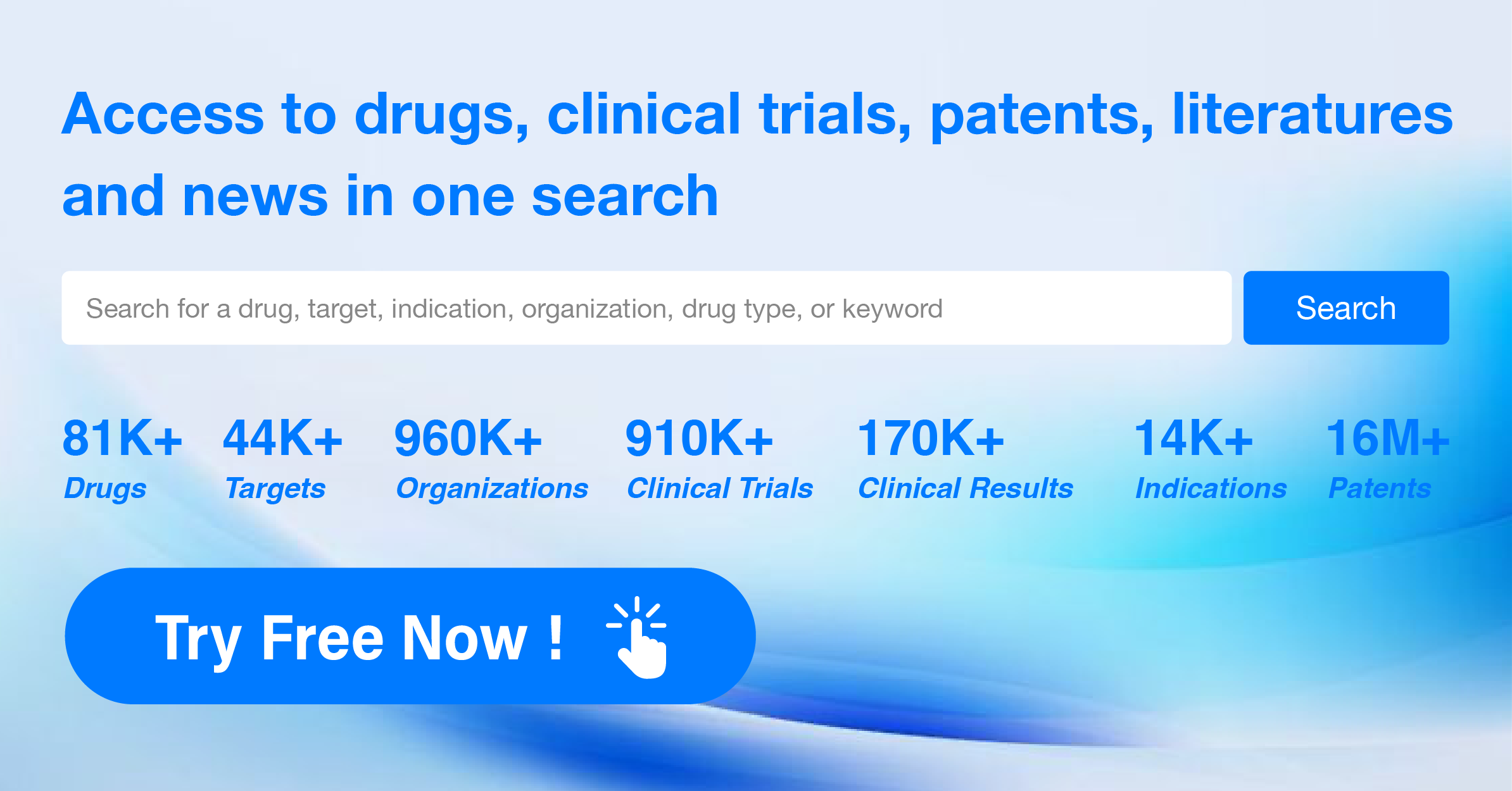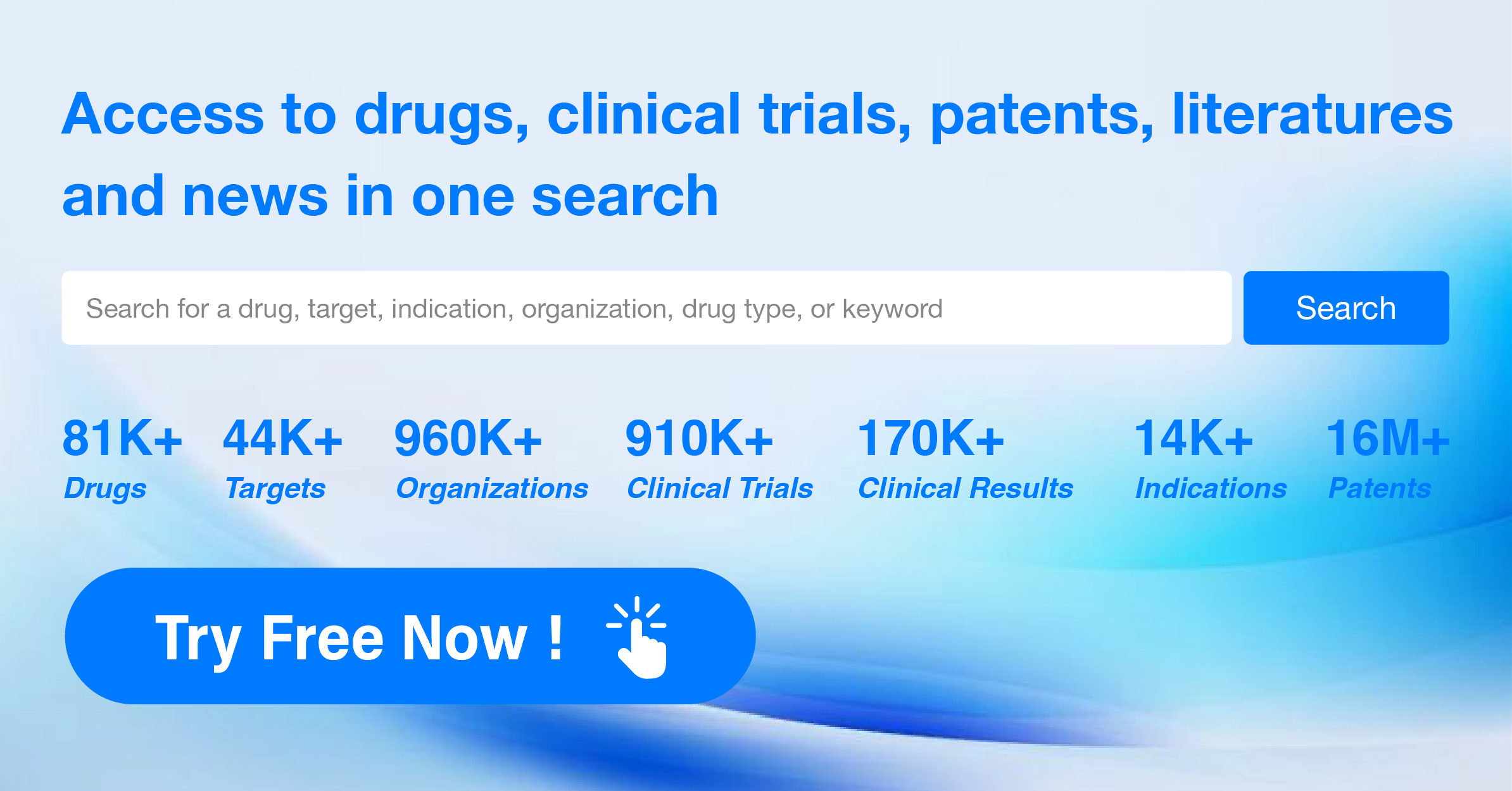Global New Drug Research and Development Progress Weekly Report(4.8-4.14)
Global Pharmaceutical Research and Development Progress
1.Roche's Novel Oral Targeted Therapy Drug, PI3Kα Inhibitor Inavolisib, Proposed for Priority Review
On April 8th, according to the official website of CDE, it was proposed to include Roche's GDC-0077 (inavolisib) in the priority review process. Inavolisib, in combination with palbociclib and endocrine therapy, is intended for the treatment of adult patients with PIK3CA-mutated, hormone receptor (HR)-positive, human epidermal growth factor receptor 2 (HER2)-negative, locally advanced or metastatic breast cancer. Inavolisib is an innovative oral targeted therapy medication that can offer good tolerability, sustained disease control, and may improve prognosis for breast cancer patients with HR-positive PIK3CA mutations. Designed to reduce the overall toxicity of treatment, inavolisib is distinguished from other PI3K inhibitors by its high potency and specificity in inhibiting PI3Kα in vitro, along with a unique mechanism of action that degrades PI3Kα mutants.
In December of the previous year, Roche announced positive results from the Phase III clinical trial, INAVO120 study. The results demonstrated that inavolisib, in combination with palbociclib and fulvestrant, could be a first-line treatment option for patients with PIK3CA mutations, HR-positive, HER2-negative, and endocrine-resistant locally advanced or metastatic breast cancer. The INAVO120 study (NCT04191499) aimed to evaluate the efficacy and safety of inavolisib combined with palbociclib and fulvestrant versus placebo combined with palbociclib and fulvestrant in patients with PIK3CA-mutated, hormone receptor-positive, HER2-negative locally advanced or metastatic breast cancer. The results showed that compared with the control group receiving palbociclib and fulvestrant, the treatment group with inavolisib, palbociclib, and fulvestrant reduced the risk of disease progression or death by 57%, with a median PFS (progression-free survival) of 15.0 months versus 7.3 months.
2. Denovo Biopharma's novel drug Liafensine reaches primary endpoint in Phase II clinical trials for treatment-resistant depression!
On April 8th, Denovo Biopharma announced the successful completion of the biomarker-guided, international multicenter, Phase 2b ENLIGHTEN study, where DB104 (liafensine) achieved the primary endpoint and all secondary clinical endpoints in patients with treatment-resistant depression who tested positive for the DGM4 biomarker. According to Denovo Biopharma's press release, this clinical trial represents an innovative approach in applying drug genetic biomarkers in the field of central nervous system (CNS) therapeutics, validating liafensine's efficacy and safety in patients through precision medicine.
Liafensine is a triple reuptake inhibitor that concurrently inhibits the reuptake of serotonins, norepinephrine, and dopamine, which are significant in the pathology of depression. Denovo Biopharma acquired all global rights for the research and development, manufacturing, and marketing of this product in 2017. As described in the company's press release, Denovo Biopharma discovered a novel biomarker DGM4 that predicts the therapeutic response to liafensine, using its proprietary DGM biomarker discovery platform. The platform was used to guide the international, multicenter, Phase 2b ENLIGHTEN study. ENLIGHTEN is a biomarker-based, DGM4-guided, randomized, double-blind, placebo-controlled clinical trial. Compared to patients receiving placebo, those treated with liafensine who were DGM4 positive exhibited significant clinical improvement over a 6-week treatment period in the symptoms of treatment-resistant depression.
3. Pfizer's RSV Vaccine Abrysvo Phase III Study Succeeds, Intends to Expand Population to 18-59 Age Group
On April 9th, Pfizer announced the success of its pivotal Phase III MONeT study, which evaluated the immunogenicity and safety of the respiratory syncytial virus (RSV) vaccine PF-06928316 (brand name: Abrysvo) in adult populations at high risk of RSV infection. The study was a multicenter, randomized, double-blind, placebo-controlled clinical trial designed to assess the preventive effect of Abrysvo versus placebo in adults aged 18-59 years at high risk of lower respiratory tract disease (LRTD) due to RSV infection. The results showed that the study met its co-primary endpoints for immunogenicity and primary safety endpoints: Abrysvo's neutralizing response against RSV-A and RSV-B was non-inferior to the levels seen in the Phase III RENOIR study. Compared to pre-vaccination levels, subjects vaccinated with Abrysvo showed at least a fourfold increase in serum neutralizing titers for RSV-A and RSV-B one month post-vaccination. Pfizer plans to submit these data to regulatory authorities and apply for the expanded use of Abrysvo from the elderly population aged 60 and above to the adult population aged 18 and above. Abrysvo is a bivalent RSV vaccine that was first approved for marketing in the United States in May 2023, for the prevention of RSV infection in individuals aged 60 and older.
4. AstraZeneca's New Generation PARP Inhibitor Saruparib Clinical Results Released
On April 9th, researchers presented the latest clinical trial results of AstraZeneca's new generation PARP1 inhibitor, saruparib, at the American Association for Cancer Research (AACR) meeting. Interim data analysis suggested that saruparib shows promising objective response rates and progression-free survival in patients with homologous recombination repair (HRR) deficient advanced breast cancer, with nearly half of the patients experiencing relief. Saruparib is a PARP1-specific inhibitor, and because it does not inhibit the activity of PARP2, it has lower toxicity compared to other PARP inhibitors, allowing it to be administered at higher doses. PETRA is a multicenter Phase 1/2 clinical trial evaluating the safety, tolerability, and efficacy of saruparib in 306 pre-treated patients with HRR deficient breast, ovarian, pancreatic, or prostate cancer. The data showed that among 31 breast cancer patients treated with a 60 mg dose of saruparib, the objective response rate was 48.4%, with a median duration of response of 7.3 months, and a median progression-free survival of 9.1 months. In terms of safety, researchers indicated that the observed adverse events were less severe compared to other PARP inhibitors. Pharmacokinetic studies revealed that patients maintained high levels of blood saruparib concentrations across all dose levels, levels that were higher than those observed for other PARP inhibitors in clinical trials. Analysis of biopsied tissue demonstrated that saruparib could inhibit approximately 90% of PARP activity.
5. Coherent Biopharma's Bi-XDC bifunctional ligand-conjugated drug has again been granted FDA Orphan Drug designation
On April 9th, Coherent Biopharma announced that their independently developed second-generation Bi-XDC dual-ligand conjugate drug CBP-1019 has been granted Orphan Drug Designation by the U.S. FDA for the treatment of esophageal cancer. It is reported that this is the second time CBP-1019 has received Orphan Drug Designation, following its designation for the treatment of pancreatic cancer in September of the previous year. CBP-1019 is the second-generation Bi-XDC product from Coherent Biopharma. Bi-XDC represents a novel class of targeted conjugate drugs. In the design of these drugs, dual ligands are used to precisely and effectively deliver the required drug payload to specific cells. Additionally, by replacing one antibody with a much smaller pair of ligand combination, the constraints for druggability on a single target are reduced, allowing Bi-XDC drugs to have a wider range of possible targets. According to Coherent Biopharma's press release, CBP-1019 employs a dual-ligand combination of FRα and TRPV6 to carry a new generation of camptothecin derivatives, showing significant antitumor activity and improved safety. The product can also effectively deliver a larger payload in patients with low receptor expression. The designation is a recognition of the drug's potential in the exploration for the treatment of a wide range of tumors and also signals new hope for patients with esophageal cancer.
6. Novo Nordisk's new generation weight loss therapy, amycretin tablets, submitted for clinical trials in China
On April 10, the official website of the Center for Drug Evaluation (CDE) of the China National Medical Products Administration publicized that the clinical trial application for Novo Nordisk's Class 1 new drug, amycretin tablets, had been accepted. Public information reveals that amycretin is an orally administered long-acting co-agonist for both the GLP-1 receptor and the insulin receptor, representing a new generation in weight loss therapies. In a recent small-scale phase 1 clinical study released by Novo Nordisk, patients who received this product experienced a weight reduction of 13.1% after 12 weeks of treatment (versus 1.1% in the placebo group), demonstrating rapid weight loss effects and good potential for clinical application. Amylin, another hormone related to hunger and satiety apart from the GLP-1 signaling pathway, has been shown to reduce energy intake and regulate food choices and preferences. It works in conjunction with insulin to regulate blood glucose levels, suppress postprandial glucagon release, and delay gastric emptying. Furthermore, the amylin receptor is poised to have a synergistic effect when combined with GLP-1 receptor agonists. According to data from Novo Nordisk's official website, amycretin is a long-acting synergistic agonist for the GLP-1R and amylin receptors, currently under development with two formulations – a once-weekly subcutaneous injection and a daily oral tablet – with planned indications for obesity.
7.D2M Biotherapeutics's Class 1 new drug DM919 gets clinical trial approval
On April 10th, D2M Biotherapeutics announced that its lead pipeline drug, DM919, recently received clinical trial approval in China. According to a press release by D2M Biotherapeutics, DM919 is a checkpoint inhibitor monoclonal antibody designed for pan-cancer indications, targeting MICA/B proteins. DM919 is a humanized monoclonal antibody targeting MICA/B proteins, developed in-house by D2M Biotherapeutics. MICA/B proteins are known as NK/T cell checkpoint inhibitors. DM919 aims to remodel and enhance the suppressed NKG2D/MICA/B pathway in the tumor microenvironment, restoring the cytotoxic function of NK cells and T cells against tumors. Given that DM919 targets an immune mechanism complementary to PD-1, it is expected to show good monotherapy efficacy in tumors with low MHC-I expression, where traditional PD-1 inhibitor treatments have poor effectiveness. Furthermore, it may improve immunotherapy effectiveness in combination with PD-1 inhibitor products. DM919 has already received clinical trial approval in the United States. Following this approval for clinical trials in China, D2M Biotherapeutics will conduct multi-center, open-label, dose-escalation, and expansion clinical trials in both China and the United States to evaluate the safety and clinical activity of DM919 in patients with advanced solid tumors.
8. Genescience Pharmaceuticals' Class 1 new drug application for Genakumab injection has been accepted for market approval
On April 11th, the official website of the Center for Drug Evaluation (CDE) of the National Medical Products Administration (NMPA) of China publicized the acceptance of Genescience Pharmaceuticals' Class 1 new drug application for the injectable monoclonal antibody Genakumab. Public records show that Genakumab is a fully human monoclonal antibody against interleukin-1 beta (IL-1β). According to China's Clinical Trial Registration and Information Announcement Platform, Genescience Pharmaceuticals is currently conducting a Phase III multicenter clinical study on this product to evaluate its efficacy and safety in the treatment of acute gouty arthritis. IL-1β, the most extensively studied member of the IL-1 family, is mainly produced by monocytes and macrophages, with additional contributions from lymphocytes, neutrophils, endothelial cells, and fibroblasts. IL-1β is a prototypical pro-inflammatory cytokine, capable of inducing the release of inflammatory cytokines such as IL-6 and TNF-α and stimulating T-cell activation, thus promoting local and systemic inflammatory responses. IL-1 antagonists are already one of the commonly used treatments for gouty arthritis in clinical practice. In addition to the Phase III study on acute gouty arthritis, researchers are also conducting several Phase II clinical studies on Genakumab for indications including: preventing acute flare-ups of gouty arthritis in patients during the initial treatment phase of uric acid reduction, and for conditions such as active systemic juvenile idiopathic arthritis and connective tissue disease-related interstitial lung disease (CTD-ILD).
9. BMS's Luspatercept New Indication Marketing Authorization Application Accepted for Review
On April 12, the website of the CDE showed that BMS's marketing authorization application for new indications of Luspatercept has been accepted. Based on the progression of clinical trials, it is speculated that the new indication filed for this application is for Myelodysplastic Syndromes (MDS). This product was first approved domestically in January 2022 to treat adult patients with beta-thalassemia who require regular red blood cell transfusions and receive ≤15 units of red blood cells per 24 weeks. Luspatercept is a globally pioneering agent for the maturation of red blood cells, which is used to regulate the late stages of erythroid maturation and increase hemoglobin levels. In November 2019, Luspatercept was first approved in the United States for treating transfusion-dependent patients with beta-thalassemia. In April 2020, Luspatercept was approved for new indications to treat MDS associated with ring sideroblasts or a combination of myelodysplastic/myeloproliferative neoplasms with ring sideroblasts and thrombocytosis-related anemia in patients who had an inadequate response to erythropoiesis-stimulating agents (ESAs) and require regular red blood cell transfusions of ≥2 units per 8 weeks. In August 2023, Luspatercept received FDA approval for the treatment of adult patients with very low to intermediate-risk MDS who have not previously received erythropoiesis-stimulating agents and may require regular red blood cell transfusions.
10.Lipocine Announces Positive Data Release for Innovative Therapy LPCN 2401
On April 12th, Lipocine Inc. announced positive outcomes from the Phase 2 clinical trial of its investigational therapy LPCN 2401. Analysis indicated that treatment with LPCN 2401 significantly increased lean muscle mass (LM) and significantly reduced fat mass (FM) in patients who are obese or overweight with at least one weight-related comorbid condition. This multicenter Phase 2 trial included subjects who were either obese (BMI≥30) or overweight (BMI≥27) with at least one weight-related comorbidity, such as hypertension, type 2 diabetes, or dyslipidemia. The analysis demonstrated that, at week 36, patients treated with LPCN 2401 had a 4.4% increase in LM and a 6.7% reduction in FM compared to placebo. Significant improvements in body composition in patients were observed by the researchers as early as week 20. Additionally, LPCN 2401 treatment reduced patients' abdominal fat (AF) by 4.1% and increased their bone mineral content (BMC) by 2.8%. The drug therapy had no impact on patient weight, as the reduction in fat was offset by an increase in lean body weight. Overall, LPCN 2401 treatment significantly improved patients' body composition, resulting in a substantial decrease in the ratio of fat mass to muscle mass.
For more information on the progress of drug development, please follow the Synapse database.
Dynamics of Global Pharmaceutical Trade Cooperation
1.Sino Biopharmaceutical Enters Strategic Collaboration with Boehringer Ingelheim
On April 8th, Boehringer Ingelheim (BI) and Sino Biopharmaceutical jointly announced the establishment of a strategic collaboration to co-develop and commercialize multiple innovative oncology products from Boehringer Ingelheim that are in the late stages of clinical development. This includes three Boehringer Ingelheim assets in clinical development: Brigatinib, Zongertinib, and a DLL3/CD3 dual-specific T cell engager, as well as several early clinical assets.
According to the press release, Brigatinib is an MDM2 (mouse double minute 2 homolog)-p53 antagonist currently in a pivotal phase 2/3 trial for the treatment of dedifferentiated liposarcoma (DDLPS); Zongertinib is a selective HER2 inhibitor capable of covalently binding to the tyrosine kinase domain (TKD) of both wild-type and mutant HER2 receptors, including those with exon 20 mutations. The enhanced selectivity of HER2 TKI could lead to improved tolerability and efficacy. It is currently in phase 1 trials for the treatment of patients with advanced or metastatic solid tumors; the DLL3/CD3 dual-specific T cell engager BI-764532 is currently in phase 2 trials for the treatment of small cell lung cancer (SCLC) and other neuroendocrine cancers (NEC). Preclinical study results have indicated that the DLL3/CD3 monotherapy can effectively inhibit the growth of DLL3-positive SCLC xenograft models in a dose-dependent and time-dependent manner.
2. Merck Acquires New Technology With Over $200 Million Investment
Recently, the University of Buffalo announced that Merck & Co., Inc. (known as MSD outside of the United States and Canada) has spent $208 million to acquire the startup company Abceutics. This company was founded on the research of Dr. Joseph P. Balthasar, a scientist at the University of Buffalo, with the aim of developing innovative therapies known as payload-binding selectivity enhancers (PBSEs). These enhance the safety of Antibody-Drug Conjugates (ADCs) by preventing them from killing healthy cells, making ADCs more secure to use. Most ADCs are produced by conjugating monoclonal antibodies with cytotoxic payloads. They work by specifically delivering these cytotoxic payloads to cells expressing particular antigens, thereby killing disease-associated cells while minimizing collateral damage to healthy cells that do not express the target antigens. However, some payloads may prematurely release before reaching the target cells, and these free cytotoxic payloads can harm healthy cells, leading to toxic side effects. PBSEs are compounds that can selectively bind to these free payloads; by attaching to the toxic payloads and neutralizing their toxicity, they reduce the impact on healthy cells. Merck has been actively expanding its ADC portfolio in recent years; last year, the company entered into a $2.2 billion research collaboration with Daiichi Sankyo to jointly develop three ADCs.
3. Vertex Acquires Alpine for $4.9 Billion to Expand Its Immuno-Oncology Pipeline
On April 10th, Vertex Pharmaceuticals and Alpine Immune Sciences jointly announced that the companies have entered into a definitive agreement whereby Vertex will acquire Alpine for $65 per share in cash, representing a total transaction value of approximately $4.9 billion. The transaction has been unanimously approved by the boards of directors of both Vertex and Alpine and is expected to be completed later this quarter.
Alpine's lead molecule, povetacicept (ALPN-303), is a potent dual antagonist of B cell activating factor (BAFF) and a proliferation-inducing ligand (APRIL). Advancing through Phase II development, povetacicept has demonstrated potential best-in-class efficacy for IgA nephropathy (IgAN), where currently no approved therapies exist that target the underlying cause of the disease. IgAN is the most common cause of primary (idiopathic) glomerulonephritis worldwide, affecting approximately 130,000 people in the United States. Povetacicept is anticipated to enter Phase III clinical development in the second half of 2024 for this condition. Owing to its mechanism of action as a BAFF/APRIL dual antagonist, povetacicept potentially benefits patients with other serious autoimmune kidney diseases, such as membranous nephropathy and lupus nephritis, as well as autoimmune cytopenias. Clinical studies regarding kidney indications and autoimmune cytopenias are ongoing.
4.Novartis Snaps Up Arvinas’ Potential “Best-in-Class” Protein Degrader for Over $1 Billion!
On April 12th, Arvinas announced that it has entered into an exclusive strategic licensing agreement with Novartis. Novartis will acquire global development and commercialization rights to Arvinas' second-generation androgen receptor (AR) targeted protein degrader PROTAC (PROteolysis TArgeting Chimera) ARV-766 for payments totaling up to $1.01 billion. Additionally, Novartis will gain access to another clinical-stage AR-targeted PROTAC degrader, AR-V7 from Arvinas. ARV-766 is an orally available, potential “first-in-class,” “best-in-class” PROTAC protein degrader designed to selectively degrade ARs with clinically resistant point mutations, including the L702H mutation. The prevalence of all AR ligand-binding domain (LBD) mutations, particularly AR L702H, increases over the course of the disease. ARV-766 achieved a ≥50% reduction in prostate-specific antigen (PSA) levels (PSA50) in 41% of mCRPC (metastatic castration-resistant prostate cancer) patients with any LBD mutation, and a PSA50 in 50% of mCRPC patients harboring AR L702H mutant tumors. Additionally, ARV-766 demonstrated a favorable tolerability profile. Progression-free survival (PFS) data from this trial is expected to be published in 2024. Based on this data, Arvinas plans to prioritize the initiation of a Phase 3 clinical trial of ARV-766 for the treatment of mCRPC and is scheduled to hold discussions with regulatory authorities in the second quarter of 2024. Under the terms of the transaction agreement, Novartis will be responsible for the global clinical development and commercialization of ARV-766 and will own all rights related to research, development, manufacturing, and commercialization for the preclinical AR-V7 project. Arvinas will receive an upfront payment of $150 million. According to the licensing agreement, Arvinas is eligible to receive additional development, regulatory, and commercial milestones totaling up to $1.01 billion.
5. Eliem Completes $120 Million Financing to Facilitate Acquisition, Securing Potential "Best-in-Class" Therapies
On April 12th, Eliem Therapeutics reached a final acquisition agreement with Tenet Medicines, according to which Eliem will complete the acquisition of Tenet. The merged company will dedicate efforts to advancing the development of its lead therapy, TNT119—a targeted antibody drug against CD19 aimed at treating a variety of autoimmune diseases such as systemic lupus erythematosus, immune thrombocytopenia, and membranous nephropathy. To support this acquisition, Eliem secured financing of $120 million. This round of funding was backed by a mix of new and existing investors including RA Capital Management, Deep Track Capital, Boxer Capital, Janus Henderson Investors, Pontifax, and Samsara Biocapital. The merged companies' strategy will be to conduct clinical proof-of-concept studies for the therapy in order to develop TNT119 for treating a range of autoimmune-mediated diseases. The primary indication for TNT119 is systemic lupus erythematosus, the most common type of lupus and autoimmune disease where the patient's immune system attacks its own tissues, leading to widespread inflammation and tissue damage in affected organs including the joints, skin, brain, lungs, kidneys, and blood vessels. The post-merger company anticipates initiating Phase 2 clinical trials for TNT119 in the treatment of systemic lupus erythematosus and immune thrombocytopenia in the second half of 2024.





